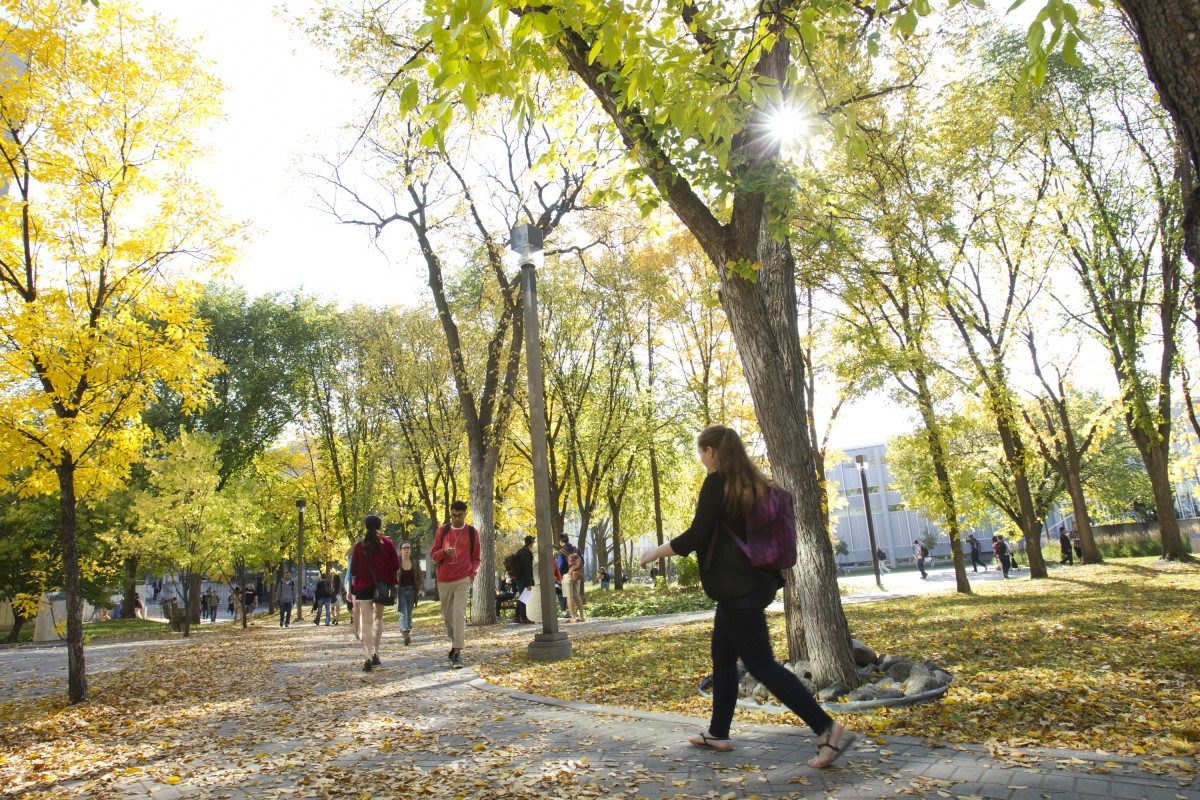
Resolution for a new academic year
The following article is published as part of the Academic Integrity Initiative, featuring the writing of University of Manitoba faculty, staff and students.
October is Academic Integrity Month! Visit our website for more information on events, and follow us on Twitter.
A brand-new academic year is upon us, and with it comes the chance to start afresh! Maybe your goal is to raise your GPA, or take that difficult course you need to graduate. Whatever your academic goals, I encourage you to include a different kind of resolution in your list for the new academic year: Learn to reach out for help.
As a student advocate, a former international student, and a doctoral candidate in Peace and Conflict Studies, I know how hard it can be to admit that we are struggling. Whether it’s a language barrier, difficulty with a specific subject matter, or a mental health challenge, we are often tempted to believe that we can handle it alone if we just try hard enough. And we do try very, very hard. Sometimes we succeed in overcoming the obstacle, but it comes at a high price—financially, personally, professionally. Even worse, there are times when we are not successful despite all our efforts and sacrifices, and we end up feeling frustrated, discouraged, and defeated.
I firmly believe that knowing how and when to reach out for help is an important life skill. Like many skills, the younger we develop them, the better—and university is a great place to start practicing. Here are five reasons to reach out for help (even if you are not 100 per cent sure that you need it):
- You have already paid for most of the supports that are available to you on campus. Resources like the Academic Learning Centre and the Student Counselling Centre are funded by your tuition dollars. So, if there is even a small chance that connecting with these offices will be helpful to you, why not give it a try?
- Your friends, family, or professors will not know that you are using these services (unless you tell them). Offices like Student Advocacy and University Health Service are legally-bound by FIPPA and PHIA and take confidentiality very seriously. No one else needs to know that you are having a hard time.
- If you know the enemy you’re fighting against, it’s easier to win the war. When we are struggling, it can be hard to pinpoint the exact root of the problem. Do we need to develop better study habits, or are we dealing with a learning disability? Did we fail the exam because we didn’t study enough, or did we blank due to exam anxiety? Connecting with specialists in Student Accessibility Services and the Academic Learning Centre can help you focus your efforts and study much more effectively.
- Friends and family have good intentions, but they don’t know all the rules. In fact, no single person has all the answers, because the university is a complex system and every student’s case is different. Academic advisors, accessibility advisors, Indigenous student advisors, and international student advisors all have specialized knowledge to help students make informed decisions and progress towards their goals. Think of it this way: seeing an advisor is free, but making mistakes can be costly.
- Professionals who work at the university love seeing students succeed. No joke: we come to work every day hoping to get the chance to really connect with a student and make a difference in their life. This is true for advisors, counsellors, advocates, and administrative assistants, not to mention professors, instructors, and administrators. If you reach out to us, we will do everything in our power to help you reach your goals.
Julia Marina Ruiz Osso is a Student Advocate with Student Advocacy at the University of Manitoba. She is a PhD candidate in Peace and Conflict Studies and a former international student from Brazil.
October is Academic Integrity Month. To learn more about the events and activities happening on campus, visit the Academic Integrity website.







